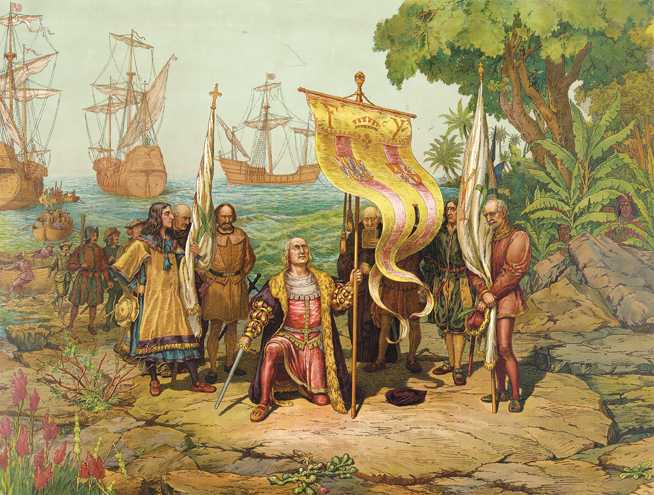Belding: Columbus sailed the ocean blue
Courtesy photo: Library of Congress
Christopher Columbus –
October 19, 2010
Last Monday I learned two things. First, I learned that Columbus Day was upon us. Second, I learned that certain people were upset about our celebrations, such as they exist, of that holiday.
I’m sure you all know the old adage that goes, “In 1492, Columbus sailed the ocean blue.” Indeed, he did. The three ships he led across the Atlantic Ocean from Spain were the first voyage to the American continent.
In all, Columbus made four voyages to the Americas. And yes, he and the conquistadors who followed on voyages and expeditions of their own did conquer, enslave and generally destroy the native populations.
They did so to enrich primarily the Spanish, and later, the French and English governments. Enormous amounts of gold and silver bullion, as well as valuable spices and commodities, were imported into Europe.
Yet for all the horrible, awful treatment of the American natives, we celebrate Columbus’ landfall. We do so not because we revel in genocide or ethnic cleansing, but because we respect links to our past that have defined us. The voyages of Columbus and others conclusively proved that there existed an enormous, previously undiscovered continent stretching nearly the whole height of the globe in between Europe and Asia.
It is true that some Viking settlements dating to centuries before Columbus have been found in what is now Canada, but they were short-lived and hardly linked with Europe at-large during their existence. No lasting towns, institutions or economic practices stem from those Viking settlements.
We celebrate Columbus because of the journey he made. Columbus Day is celebrated not on Columbus’ birthday, but on the date he landed in the Americas. We celebrate not the man, but an event that opened the gates to vast immigration, trade and political forces on the old monarchies of Europe.
Such pressures eventually, however indirectly, led to the creation of the United States of America — truly the freest and wealthiest country in the world — and increases in freedom and liberty for those Europeans who remained on their side of the Atlantic.
Much talk is made of changing textbooks to reflect not only the glorious accomplishments of dead, white, European men, but also the struggles of ordinary natives slaving away on plantations. I don’t quarrel with that desire.
But there is only so much information that can be put into the textbooks that are used by elementary, middle and high school classes — and even college-level survey history courses. Personally, I have always encountered discussions of the treatment of American native populations and empires at the hands of European conquerors.
If you pair already-extant information about such awful colonial practices with the large expense associated with writing, publishing and acquiring textbooks, it is possible to see a significant problem. You cannot simply go buy new textbooks for whole classes of grade-school students each time a new piece of information comes to light. New books are purchased when old copies are literally falling apart, or when they are so visibly out of date as to be generally useless. It is simply not practical to repeatedly buy new books.
And with the advent of the Internet and online collections of journal and newspaper articles, why put so much emphasis on actual textbooks? The same newly published information is easily accessible. It is for teachers to take it upon themselves to educate their students and not cheat them of the truth.
To the extent that I celebrate Columbus Day — it often passes unmarked in my life — I recall that Columbus’ voyage was one of spectacular risk and little chance of success. In 1492, when Columbus sailed the ocean blue, it took a considerable amount of daring to set out from port. It is hugely impressive that he and his sailors would have undertaken such a feat.







